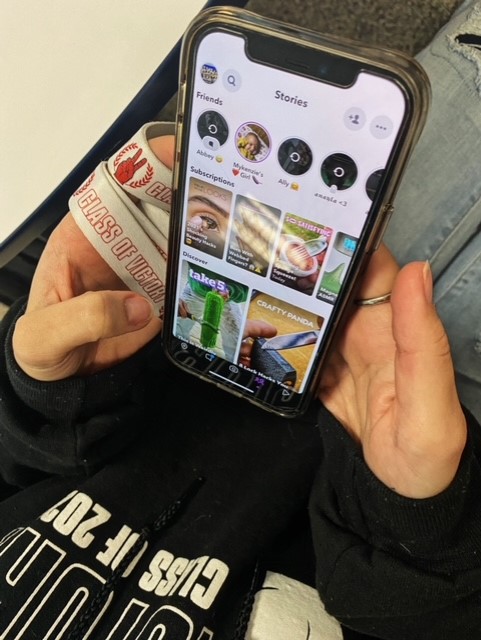Mental Health and Social Media
Joann Bolander (12) scrolls aimlessly through social media. “I would have to say it gets me mad,” Bolander said, “It adds to my stress.”
Social media has been a prevalent cause of significant mental health issues from its humble start. From the artsy Tumblr to the ever-popular Instagram, social media has played an essential role in decreasing the mentality and wellbeing of its users. From promoting “skinny teas” to dieting plans, the media has also attributed a new rise in disordered eating. “Social media makes me think I need to be skinnier, even if I already am,” Rose Thomas (12) said. Celebrities and esteemed influencers often alter their body shapes and facial features to appeal to society. Young social media users can easily distort reality and fail to see what’s authentic and healthy and what’s fake and not.
Health influencers are pretty standard to see on social media today. From diet culture to workout videos, these “influencers” aren’t hard to find. However, often these influencers edit the truth to make themselves and the programs or products they are sponsored by seem better than they are. “I think health influencers exaggerate how to fit they are and make things look easier than they are,” Rose Thomas (12) said. To social media indulgence, the false advertisement of health and beauty can be distressing to mental health. According to Insider, health influencers give incorrect information 90% of the time.
Celebrities have also been infamously known for editing their bodies. Celebs like Kim Kardashian and Britney Spears have been widely accused of making themselves look skinnier and more toned than they are. “I think celebrities edit their bodies because society wants them to look a certain way,” Andre Sanchez (10) said, “They think that they have to keep up society’s standards.” Because of the editing on social media, society’s perception of the ideal body is altered.
With most social media users being teenagers, social media can prove to be a big distraction. With seemingly endless notifications and urgent texts, a student can quickly get off track. “Social media does distract me,” Jenna Ferger (11) said,” I like seeing what other people are up to, and I can get wrapped up in it.” While subconsciously, avid social media users crave to check their phones, even in complicated situations.
From body image to distractions, social media has proved to have adverse side effects on the mentality of its users. Well known for its abrasive editing and significant surplus of false health information, social media can distort users’ perceptions of themselves.












